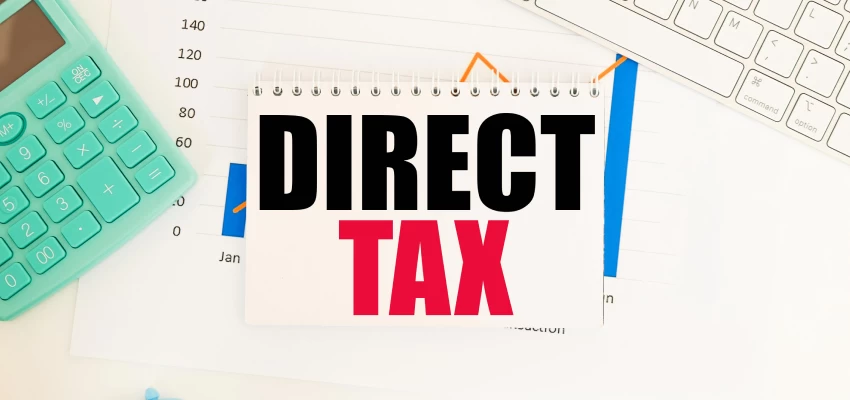Introduction
The Hon’ble Supreme Court (‘Hon’ble SC’) recently pronounced its judgment in the case of Saraf Exports v. CIT [Civil Appeal No. 4822 of 2022], settling the issue of entitlement of deduction under Section 80-IB of the Income-tax Act, 1961 (‘IT Act’) with respect to receipts under Duty Drawback Scheme (‘DDS’) and on transfer of Duty Entitlement Pass Book Scheme (‘DEPB’). The taxpayer was engaged in the business of manufacture and export of wooden handicrafts. For the exports undertaken by it, the taxpayer was entitled to benefits under certain schemes framed under the Customs Act, 1962. During the subject period, the taxpayer received certain incentives under the DDS and DEPB. The benefits were claimed as deduction under Section Section 80-IB of the IT Act, as being ‘derived from’ its industrial undertaking of manufacturing wooden handicrafts. The Revenue Authorities, however, denied the claim on the ground that the said benefit was a separate source of income and cannot be treated as ‘derived’ from the industrial undertaking of the taxpayer. On subsequent appeals, the High Court too held against the taxpayer. The taxpayer subsequently filed an appeal before the Hon’ble SC. Before analysing the decision of the Hon’ble SC, it is pertinent to analyse the dichotomy in various judicial precedents passed by various judicial forums.
Prominent decisions highlighted in Saraf Exports
The Hon’ble SC in Liberty India v. CIT [317 ITR 218 (SC)] had analyzed whether the profits from DDS and DEPB can be said to be profit ‘derived from’ the business of industrial undertaking and eligible for deduction under Section 80-IB. It was held that the schemes are incentives which flow from the schemes of the Central Government or the Customs Act. It was held that the said profits from DEPB, DDS cannot be linked to ‘profits derived from industrial undertaking’ as they are ancillary profits. The decision also held that cost of purchase includes duties and taxes which are directly attributable to such purchase. It was held that DEPB and DDS should be treated as separate items of revenue or income and not as part of the cost of purchases. Such schemes constitute an independent source of income beyond the first degree of nexus to the profits and industrial undertaking.
The Hon’ble SC in CIT v. Meghalaya Steels [383 ITR 217 (SC)] ruled that various subsidies including transport, power, interest and insurance qualify for deduction under Sections 80IB and 80IC. ‘Direct Nexus’ test was applied to hold that the subsidies have direct nexus with business or profession and specifically that the profits and gains as termed in Sections 80IB and 80IC have reference to net profit. Net profit can only be calculated by deducting elements of manufacturing or selling cost from the sale price of the product. That being so, the profits which are arrived at, after deduction of the manufacturing and the selling costs reimbursed to the assessee by the Government are derived from the business of the assessee.
Judicial standing in preceding judicial decisions
The Hon’ble Rajasthan High Court in CIT v. Garment Crafts [(2016) 68 taxmann.com 222 (Rajasthan)] held that DEPB and DDS do not form part of net profit of undertaking as they are not derived from eligible business but are incentives under a particular scheme. Thus, they are not allowable as deduction under Section 80-IB. Similar views were upheld by the Hon’ble Gujarat High Court in Banpal Oil Chem (P) Ltd v. ACIT [(2016) 71 taxmann.com 342 (Gujarat)], Hon’ble Bombay High Court in CIT v. Rachna Udhyog [(2010) 1 taxmann.com 29 (Bombay)]. The Hon’ble SC in Pandian Chemicals Ltd. v. CIT [(2003) 129 Taxman 539 (SC)] held that the words ‘derived from’ must be understood as something that has direct or immediate nexus with an industrial undertaking.
The Hon’ble Rajasthan High Court in Saraf Seasoning Udyog v. ITO [(2008) 174 Taxman 594 (Rajasthan)] held that income derived from sale of DEPB license is profit and gain from industrial undertaking and so, is eligible for deduction under Section 80-IB. The Hon’ble SC in B. Desraj v. CIT [(2008) 171 Taxman 481 (SC)] held that the words ‘business profits’ as mentioned in Section 80HHC (3) of the IT Act include duty drawback and so deduction should be allowed.
Hon’ble SC decision in Saraf Exports
The Hon’ble SC held that in the light of the decisions of Liberty India and Sterling Foods, the decision of the High Court would not require any intervention. The Court observed that the decision of Meghalaya Steels deals with certain subsidies given by the State Government which directly affect cost of manufacturing and therefore has a direct nexus with profits and gains of the undertaking. The Court also specifically observed that the decision of Liberty India was not disapproved in Meghalaya Steel.
Conclusion
The decision of the Hon’ble SC upheld the ratio laid down in Liberty India and Sterling Foods to ultimately hold that export incentives will not qualify as first-degree nexus for the purposes of claim of deduction under Section 80-IB. The decision has reiterated the principle laid down earlier that restrictive meaning must be given to the expression ‘derived from’.
It is pertinent to bring to light that the term ‘derived from’ has been employed in other provisions of the IT Act as well. Section 11(a) of the IT Act provides for income ‘derived from’ property, Section 12(1) of the IT Act provides for income ‘derived from’ property held under trust wholly for charitable or religious purposes. The factum of being able to ascribe the meaning of the term to usage in other similar provisions seems likely to be subject to litigation as well.
Another food for thought would be to observe whether the ratio of this decision would also apply to other export incentives and all other incentives from the Government such as MEIS/SEIS scrips or those that may be rolled out in the future, vide various judicial decisions and other allied interpretations.
[The author is an Associate in Direct Tax Team at Lakshmikumaran and Sridharan Attorneys, Chennai]











